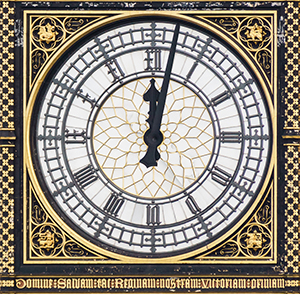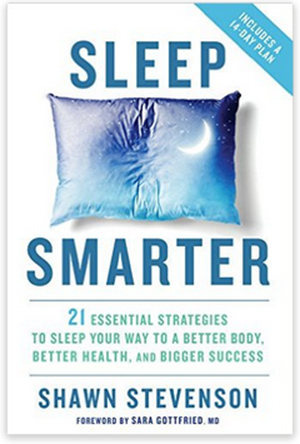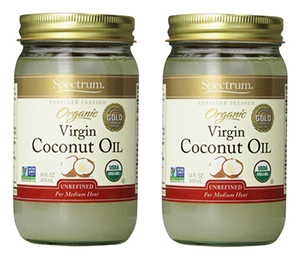It’s a classic, isn’t it?
You’re reading a fantastic book, and you keep saying to yourself, “Just one more page!” Or your best friend forever is visiting from out of town, and you talk late into the night, heart to heart.
 Suddenly you realize that it’s midnight and you’re starving.
Suddenly you realize that it’s midnight and you’re starving.
I never gave the classic midnight snack much thought. I’d heard health experts recommend against it for various reasons: it didn’t give your gut a chance to rest; calories ingested at night got converted to body fat more readily; etc.
I’d also read that the food-to-body-fat superhighway was nonsense: it didn’t matter when you ate, rather that how much you ate overall was the key.
But I never paid more than cursory attention to all the discussion.
When I was younger, I happened to be one of those lucky people who maintain an ideal weight without much attention or effort.
Now that I’m older, my metabolism has slowed – as most people’s do – and I pack on extra pounds much more easily. So the pros and cons of midnight snacking hold more interest for me than heretofore.
But I’ve also learned that the simplistic calories-in-calories-out model (calories expended must match or exceed calories ingested) still touted by much of the medical establishment grossly ignores the action of the hormone insulin on the body.
My blog posts Thinner and Healthier and Test first, then conclude! go into this more extensively, if you’re interested. But the bottom line is that most people become much more sensitive to the effects of insulin in the bloodstream as they get older. The hormone packs fat into the fat cells and, once we’re over 50, makes it more and more difficult for any of that fat to be removed and used for fuel. While starving yourself on super-low-calorie diets merely deprives your body of needed nutrients and lowers your metabolism further. Catch-22!
But I digress! 😀
 The reason I bring this up is because of something I learned in Sleep Smarter by Shawn Stevenson.
The reason I bring this up is because of something I learned in Sleep Smarter by Shawn Stevenson.
When you are sleep deprived, the amount of glucose reaching your brain dips.
Brains run on glucose. They must have it. However, there’s no need to eat sugar to fuel your brain. In fact, don’t do it! Your liver can make all the glucose your brain requires, without you ever ingesting any sugar at all.
In a sleep researcher’s lab, where the amount of sleep deprivation induced for the purpose of study is extreme (24 hours), glucose reaching the brain dips by 6%. But suppose you regularly get by on only 6 or 7 hours of sleep. No doubt your glucose dips much less, but it still dips.
Even worse, the reduction of glucose to the brain is not distributed equally. When the reduction is 6% overall, the parietal lobe and the prefrontal cortex lose from 12% to 14% of the glucose they should receive.
Why is that important?
The parietal lobe and the prefrontal cortex are the areas of the brain we use for thinking, for discerning the differences between potential actions, for social interactions, and for knowing right from wrong.
When the parietal lobe and prefrontal are short of their necessary fuel, our decision making suffers.
That’s why you might do something really unwise late at night and then wonder in the morning: “What was I thinking?” In fact, you weren’t thinking, or not very well.
On top of this, your brain late at night – desperately seeking glucose, due to the growing dearth of this necessary fuel as the hour latens – knows perfectly well that a shot of glucose is conveniently at hand in a bag of potato chips or a bowl of Cheerios® or a few scoops of ice cream.
That’s why those foods prove so irresistible at midnight!
I took away several things from all of this.
1 • If I’m asleep before the glucose dip arrives, it will never even happen. Asleep, my body will be in the repair mode that occurs most intensely between 10 PM and 2 AM. (That’s another fact I learned from Sleep Smarter.)
My brain chemistry will be exactly as it is supposed to be, initiating repairs, instead of losing glucose and frantically seeking a resupply by prompting cravings.
(Unless I am chronically sleep deprived; in which case, the glucose dip occurs even in sleep and can actually wake me up!)
2 • It’s not that eating late at night is a problem in itself. It’s that such snacks are usually extra and often composed of sugar or simple carbohydrates. I’ve already ingested all the food I truly need at breakfast, lunch, and dinner.
Whereas, if I fall asleep somewhere between 10 PM and 11 PM, I’ll never even get hungry at midnight, let alone go seeking extra food.
3 • If I do happen to stay up too late – which will happen at times, because I’m a night owl – I have the perfect hack. I’ve tested it, and it usually works, although not infallibly. The brain in search of fuel is pretty fierce!
 Here’s the scenario: I get to re-reading The Curse of Chalion by Lois McMaster Bujold, one of my absolute favorites, and – whups! it’s midnight!
Here’s the scenario: I get to re-reading The Curse of Chalion by Lois McMaster Bujold, one of my absolute favorites, and – whups! it’s midnight!
I realize I’m feeling really hungry, hungry enough that it will keep me awake, even though my eyelids are falling closed with my fatigue.
In the past, I’ve poured a big glass of local, farm-fresh milk and stirred a little stevia and cocoa powder into it.
The problem with that is that I’m getting an awful lot of carbs in the lactose (milk sugar) contained in that milk. On top of that, the sweetness of the stevia will trigger a larger insulin release into my bloodstream than would the lactose alone. And, on top of that, the big glass holds twice the amount of milk that I would normally drink in one go. So I’m getting a huge lactose hit with little else to cushion it.
While I was fighting my sleep schedule in the aftermath of my retinal detachment – before I read Sleep Smarter – I drank that huge glass of milk nearly nightly. And I gained 10 pounds. Not good!
(Chronic sleep deprivation all by itself causes weight gain, without any big glasses of milk, so some of my gain of ten pounds was no doubt due to several months of sleep loss.)
These days I’m usually asleep by 11 PM. Plus I’m finally visiting the gym swimming pool again after a long layoff. So I’m hoping to take those 10 pounds off! (Fingers crossed.)
But on those nights like last night, when I was absorbed in The Curse of Chalion and got hungry, this is what I do:
FIRST, I remind myself that my sensation of hunger, while powerful, is due to the dip in glucose to my brain. This actually does help, although it is not enough without my next step.
SECOND, I eat 2 tablespoons of coconut oil.
 Coconut oil is made up of largely medium-chain fatty acids that are not normally stored in the body’s fat cells at all. Instead they are quickly converted to energy. Additionally, coconut oil acts as a slight appetite suppressant for many people. It certainly does for me.
Coconut oil is made up of largely medium-chain fatty acids that are not normally stored in the body’s fat cells at all. Instead they are quickly converted to energy. Additionally, coconut oil acts as a slight appetite suppressant for many people. It certainly does for me.
Anyway, it’s a much better option than the huge glass of milk. That 2 tablespoons of coconut oil diminishes my craving for food at midnight just enough that I can get to sleep. And it gives me a slight energy boost – not a frenetic boost like caffeine, but a calm can-do feeling – just enough oomph for me to go brush my teeth, spray some magnesium oil on my legs, and turn out the light.
CAUTION: If you decide to try my coconut oil hack and see if it works for you, be a little careful. The short- and medium-chain fatty acids in coconut oil don’t require bile for digestion. But coconut oil also contains some long-chain fatty acida, and those do require bile for digestion.
If you’ve been eating a low-fat diet for a while, which many people do these days, your body hasn’t needed much bile for a while and has adjusted by not making much. It won’t suddenly produce more when you abruptly dump 2 tablespoons of coconut oil in! Which means you’ll feel nauseated and maybe even experience diarrhea.
So start with a quarter of a teaspoon and work up slowly to give your pancreas and gallbladder a chance to ramp up.
(I’ve blogged about the benefits of coconut oil in Butter and Coconut and Cream, Oh My!, if you’d like to know more.)
The bottom line? It’s really best to be asleep long before midnight!
But I found the why of the midnight munchies to be fascinating, so – of course! – I had to share it with you. 😀
To read the blog posts I mentioned in passing, see:
How I Rehabilitated My Sleep
Thinner and Healthier
Test first, then conclude!
Butter and Coconut and Cream, Oh My!

I love these posts about sleep.
😀 There will probably be a few more. I’m finding I have more to say about it than just one post’s worth.
Getting to bed before the demand for more food is a perennial goal. When I get through the current crises, I’ll probably reread your post, and look for the book. What you say makes a lot of sense.
Stress doesn’t help – it consumes energy I should be using to make better decisions. It may be self-limiting – the child up way past 3AM – but, for now, I seem unable to turn the brain off until very late – I’ve drifted past the 3AM mark myself. No rotating, but way too late.
It is a problem to both be a night owl (delayed sleep phase) and know that my best writing time is as soon as the sun comes up, or earlier, because then I know there’s nothing on the internet and I seem to get right to work. I don’t get enough nighttime sleep as it is, and I have learned NOT to get up if it hasn’t been at least 6 hours, or I’m not going to get anything done anyway. Self-managing is a perennial problem – it isn’t helped by the lack of energy.
I’m glad you’ve found things which work – it must make you a lot more productive.
I think I was short enough on sleep in the retina aftermath, that my natural optimism was being affected. I’m feeling more upbeat now that I’m getting enough sleep. But I suspect that my productivity won’t surge until all my gym visits begin to pay off. Currently, I’m physically and mentally drained when I come home from swimming. But I am hopeful that my strength and stamina will recover at some point, and then my productivity will improve. I’m happy that I feel better, that I’m making good progress on WIP, and that I’m holding the line in other areas. Naturally, I want to do more than hold the line; I want to make progress! 😀
Something bothered me, and I came back (via your site map!) and remembered what it was: glucose is not the only food the brain works on. It works very well on ketones, the breakdown of stored fat.
That’s why you are less hungry if you manage to cut the carbs entirely, and let your body run on stored fuel as well as dietary fat.
I don’t understand how you can eat a spoonful of coconut fat, though. It makes me gag. Though I should probably go buy some more, put it in my shakes instead of the spoonful of heavy cream, and find some way to lower the total stress in my life, and … It’s been crazy, and it doesn’t look as if crazy will go away soon.
I’ll reread all your posts and ask questions.
I do doubt the timing of the insulin/melatonin, since messing up the melatonin production (night owls, delayed sleep phase problems, and daughter’s Non-24) mean data taken on ‘normal’ humans with regular circadian rhythms may not apply, or be as tight a connection. She’s now taking a beta blocker, of all things, and it blocks melatonin production during the day (she takes it in the morning).
I wish humans came with readouts and a way to synchronize body systems back to the ‘ideal’ which is usually connected with the sun we evolved under, but we don’t yet. Give it a few more years.
Yay for the site map! 😀
You are quite right about the brain running very nicely on ketone bodies, of course. But I think that, even when one is eating low-carb and one is ketone adapted, the liver produces some glucose, and the brain then gets its energy mostly from ketone bodies, but not entirely. There is still some glucose in the mix.
https://en.wikipedia.org/wiki/Ketone_bodies
Sleep Smarter, being very much a layman’s book, does not go into how a low-carb diet intersects with the brain’s ketone-glucose mix of fuel. I also suspect that there may not be much research at this time investigating the effect of the late-night glucose dip in ketone-adapted individuals. Does the glucose dip still occur? Is it as severe? Questions! 😀